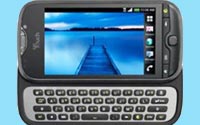
Nearly half (47%) of major brands are dissatisfied with the progress of their mobile marketing efforts because of a lack of resources and talent to
develop and execute mobile engagements, according to a new study by the CMO Council.
The nonprofit organization’s survey of 250 global
marketers released today found that another 37% are still evaluating the effectiveness of their mobile programs, and just 14% are happy with the results of their mobile marketing activities.
The finding jibes with a separate Forrester study last week that suggested
mobile initiatives at a majority of companies in the U.S. are starved for funding. The CMO Council study, fielded with the Mobile Marketing Association and sponsored by Pandora and FUN Mobility,
pointed to a lack of strategy as well as resources.
advertisement
advertisement
Only 16% of companies have a formal strategy for using mobile as a significant channel of customer engagement, 46% are reviewing the role of
mobile, and 32% are allocating more budget to app development and other mobile projects. Another 40% are making sure desktop sites and content are mobile-optimized.
While interest is high,
skepticism remains as many marketers perceive mobile falls short because of inflated claims, unmet expectations, and a lack of best practices.
The report, titled "Engage at Every Stage," found
that marketers are most interested in mobile as a marketing vehicle that is ubiquitous and always-on. The ability to target and create highly customized campaigns is seen as a key benefit. In addition
to messaging, favored tactics in mobile include social media, service delivery, rich media, and search and location-based offerings.
“Given that marketers are looking to deepen
relationships and improve service, it is surprising to see that mobile is not being widely activated as a service and support agent,” noted the study. Only 15% are using mobile to trigger
consumption of a product or service, 18% are acquiring or reactivating customers, and 18% use mobile to enable transactions.
The companies surveyed also showed little confidence in mobile as a
paid advertising medium. Only 29% are looking at mobile ad opportunities to reach customers through existing mobile content channels. That’s most likely because only 26% of marketers believe
their current mobile investments have yielded inconsistent results.
Despite the skepticism and challenges, more than half (53%) of companies have or are developing a dedicated team assigned to
mobile programs, and 51% are looking for ways to further mobile marketing capabilities via internal training and development.
The CMO Council also highlighted several high-profile mobile
marketing initiatives from participating brands:
*More than 60% of guests checking into the Four Seasons Hotels & Resorts now do so using an iPad, compared to none three years ago.
*Caesars Entertainment Total Rewards program allows members to view all aspects of their loyalty program on-demand through a mobile app.
*Consumers are using a mobile app to locate the
nearest Coca-Cola Freestyle drink machine, find out what flavors are being dispensed, and provide feedback on the personalized drink they are consuming.
Other companies contributing to the
study included Anheuser-Busch InBev, Beam Global, Caesars Entertainment, Eastman Kodak, JP Morgan Chase, NASCAR, SEGA of America, Sony Entertainment Television, Unilever, Virgin America, and Wyndham
Hotel Group. Some 42% of businesses surveyed had more than $1 billion in annual sales.